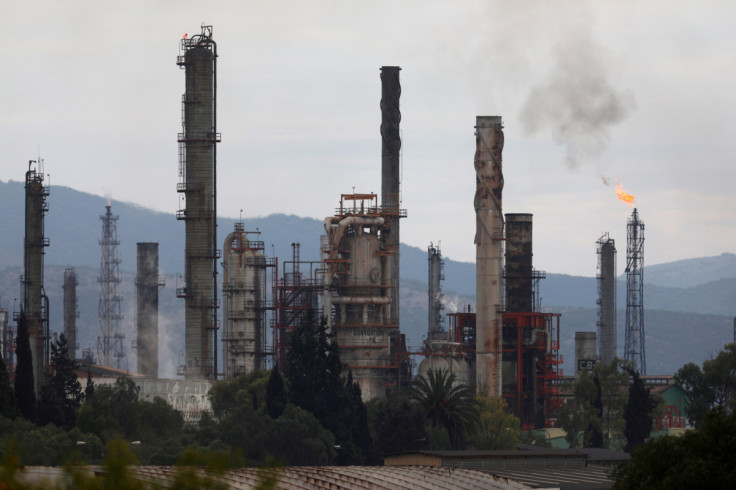U.S. Requests Dispute Talks Over Mexican Energy Policies That 'Undermine' U.S. Firms

The United States on Wednesday requested dispute settlement consultations with Mexico under a regional trade deal over Mexican energy policies that it considers discriminatory and says "undermine" American firms and U.S.-produced energy.
The request, announced by the U.S. Trade Representative's office, marks the most serious dispute between Washington and Mexico City since the U.S.-Mexico-Canada Agreement on trade took effect two years ago. If unresolved, it could ultimately lead to punitive U.S. tariffs.
USTR said the requested consultations relate to Mexican measures that it argues disadvantage U.S. firms in favor of Mexican state-owned power utility Comision Federal de Electricidad (CFE) and oil producer Petroleos Mexicanos (Pemex).
Mexican President Andres Manuel Lopez Obrador, a left-leaning energy nationalist, has pledged to revive Pemex and CFE, which he has said his predecessors deliberately "destroyed" to cede Mexico's energy market to foreigners.
The United States is now arguing his efforts to strengthen the state-run firms appear to contravene Mexico's USMCA commitments.
"We have repeatedly expressed serious concerns about a series of changes in Mexico's energy policies and their consistency with Mexico's commitments under the USMCA," U.S. Trade Representative Katherine Tai said in the announcement.
The U.S. move is a blow to Mexico, and comes just a week after Lopez Obrador met U.S. President Joe Biden in Washington, and announced that U.S. firms were planning to plough billions of dollars into the Mexican energy sector.
Tai argued that policy changes undertaken by Mexico are affecting U.S. economic interests in multiple sectors and "disincentivize investment" by clean-energy suppliers and by companies that seek to purchase clean, reliable energy.
Mexico's Supreme Court in April upheld contentious electricity legislation passed in 2021 that mandates that CFE should take priority over privately-run power providers on dispatch, or when plants come online.
Lopez Obrador argues his measures will benefit consumers and make Mexico more self-sufficient. The opposition says they will raise electricity costs, undermine investor confidence and violate Mexico's clean energy commitments.
USTR said it was challenging amendments to Mexican legislation that prioritize distribution of CFE-generated power over cleaner sources of energy provided by private sector suppliers, such as wind and solar.
USTR said Mexico also has been "delaying, denying or failing to act" on permit applications for renewable energy facilities and to store, transload or sell fuels, making it difficult for private firms to participate -- echoing complaints from Mexican business lobbies.
"We have tried to work constructively with the Mexican government to address these concerns, but, unfortunately, U.S. companies continue to face unfair treatment in Mexico," Tai said.
TARIFFS NOT GOALS
A USTR official told reporters on a conference call that punitive tariffs were "a possibility down the line if we can't get this resolved through other means" but the agency hoped to reopen the market to U.S. firms through consultations.
"A success is not to get tariffs," the official said.
Ken Salazar, the U.S. Ambassador to Mexico, said in June that Mexico's energy policies had put at risk some $30 billion in existing and planned U.S. investment projects in Mexico.
Under USMCA rules, if the complaint is not resolved in 75 days, USTR can request a dispute panel to review the claims.
Copyright Thomson Reuters. All rights reserved.





















